Hello in Mandarin Chinese // 20 Top Ways To Greet Someone in Mandarin
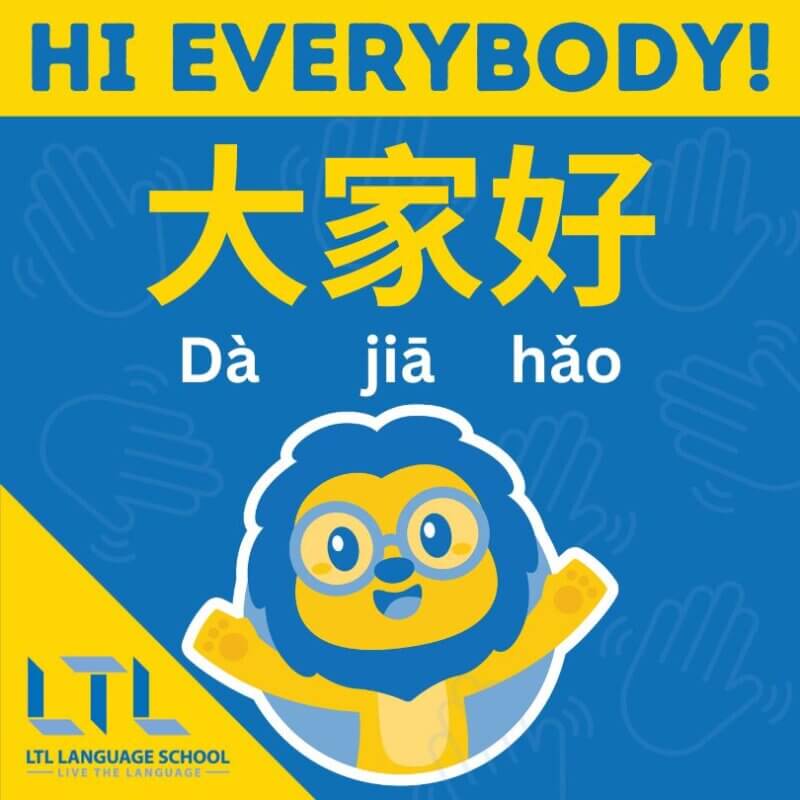
How do you say hello in Chinese?
It’s usually the first thing students ask when starting out learning Mandarin.
You may have already heard of 你好 nǐ hǎo, but did you know there’s more than 20 ways of greeting someone in Mandarin?
And that’s not even counting Cantonese or Shanghainese greetings!
In this article, we’ll take you through our top 20 ways of saying hello in Mandarin Chinese, including both formal and informal greetings.
1. 你好 – Nǐ hǎo
你好The standard, well-known greeting which is one of the first things anyone studying Mandarin will learn. It literary means “you good” and can be used in a variety of situations.
👉 If you’re new to Chinese, it’s pronounced like “knee how”.
If you’re confused by the squiggly line above the i and a, those indicate the tones. Make sure to check out our guide to Chinese tones if you’re not sure how to pronounce these!
2. 您好 – Nín hǎo
您好Similar to the above, but with the difference that this version of “you” is polite, 您.
So when you’re meeting someone older than you, in a high position, or you simply want to be extra polite, 您好 is a safe bet!

How Does Language Change Your Brain?
How Does Language Change Your Brain? Lower risk of developing dementia or Alzheimer’s, improved creativity, improved cognitive ability, among many benefits.
3. 你好吗? – Nǐ hǎo ma?
你好吗This means ‘how are you?’ and is either used as an initial greeting or an immediate follow up to a greeting.
You may have noticed that it’s the same as 你好 (nǐ hǎo), but with the addition of 吗 (ma).
Let’s break it down a little:
你 nǐ – you
好 hǎo – good
吗 ma – question particle used for ‘yes or no’ questions
BONUS || Check out how to ask ‘How are you?’ in Japanese
4. 您好吗? – Nín hǎo ma?
您好吗?Same as above, but with the polite 您
Don’t stop at hello! Learn these other useful phrases:
🤝 Learn how to say thank you in Chinese
❤️ Learn how to say I love you in Chinese
5. 你怎么样? – Nǐ zěnmeyàng?
An informal greeting most often used when meeting friends or people you’re familiar with.
Means “how are you doing?” or “what’s up?”
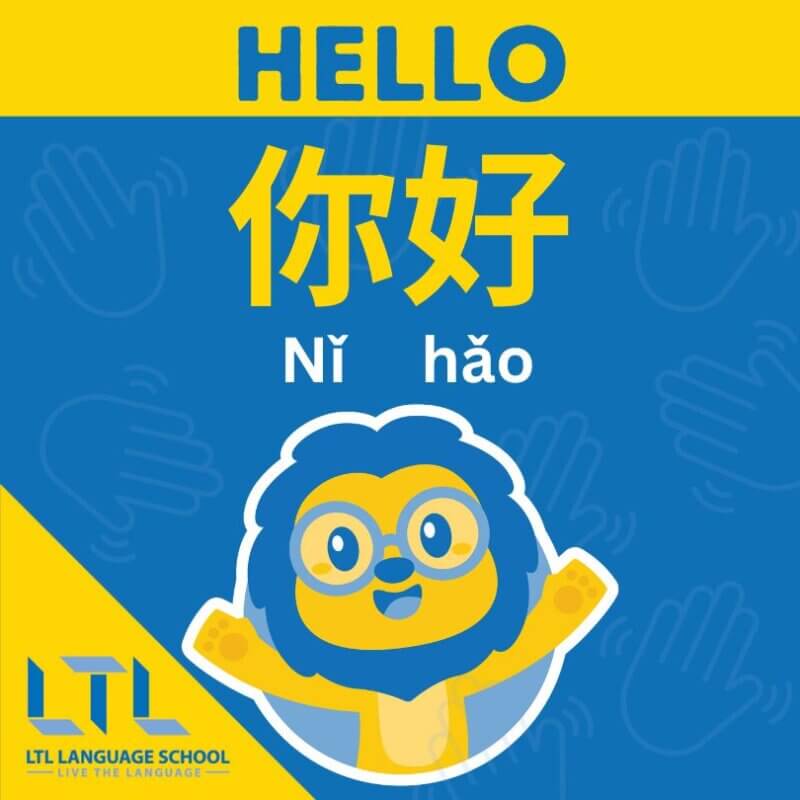
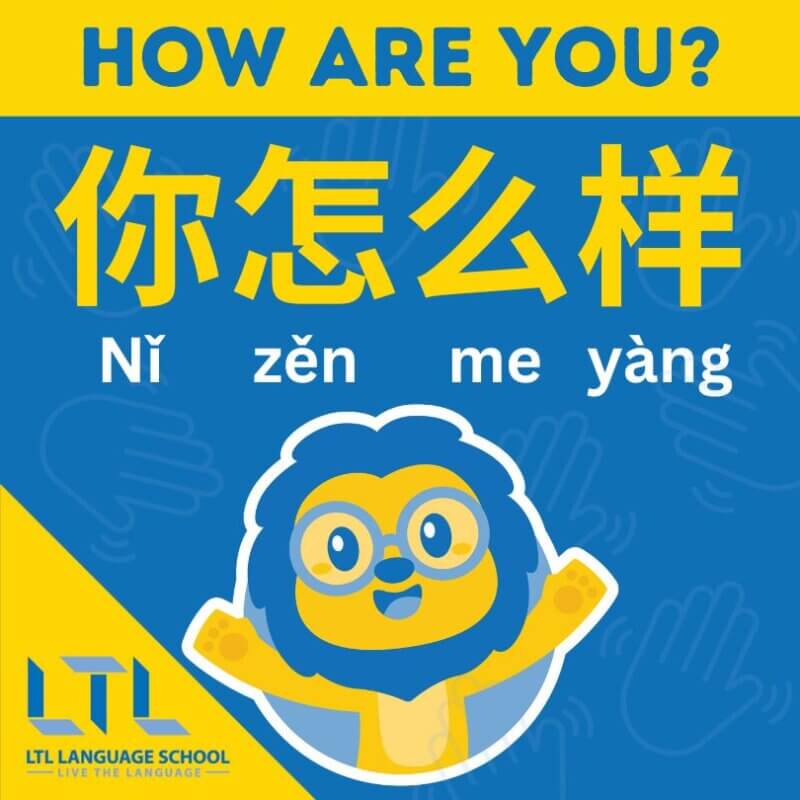
6. 幸会 – Xìnghuì
幸会A traditional way to say “nice to meet you”, often used by the older generations, although some younger people have taken to use 幸会 in a joking, or ironic way.
Want to practice greeting someone in Chinese? Start studying with certified, native speaker teachers today on our online Flexi Classes platform!
7. 久仰 – Jiǔyǎng
久仰Very, very formal way of greeting.
This is not used between friends, but rather in professional settings when meeting for the first time. The literal meaning is something akin to “long lasting”
8. 久闻大名 – Jiǔwéndàmíng
久闻大名Even more formal than the previous greeting.
This one should only be used when greeting someone you have a tremendous amount of respect for, and who is at least somewhat famous..
The literal meaning is “your name is famous”, which means “I have heard much about you”.
9. 早!Zǎo
早“Morning!”, short for 早上好 (zǎo shang hǎo), meaning “good morning.”
Use it as you would use the English equivalent, and you’ll be safe… as long as it’s in the morning.
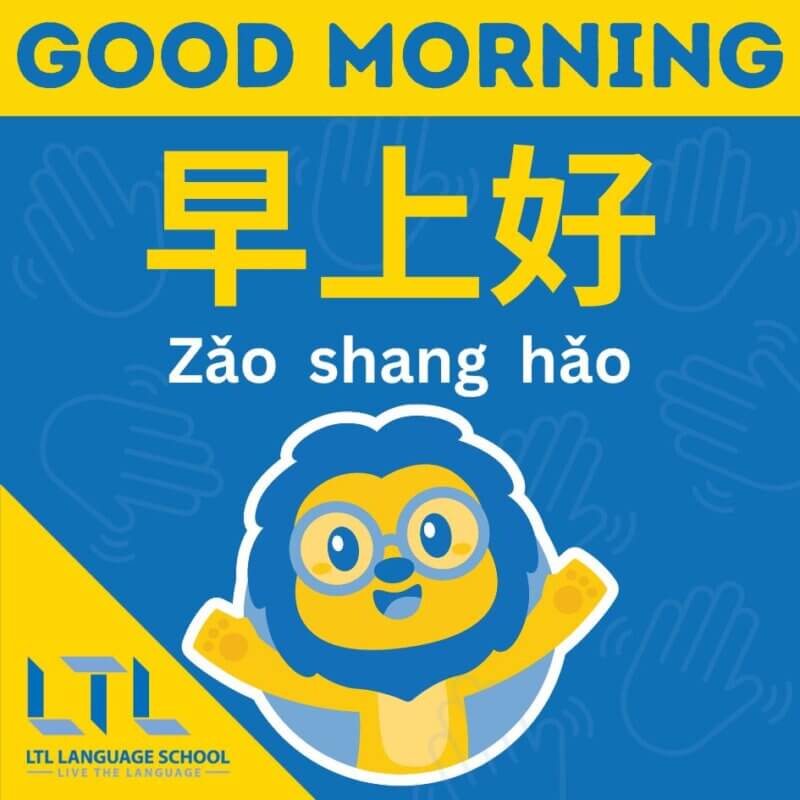
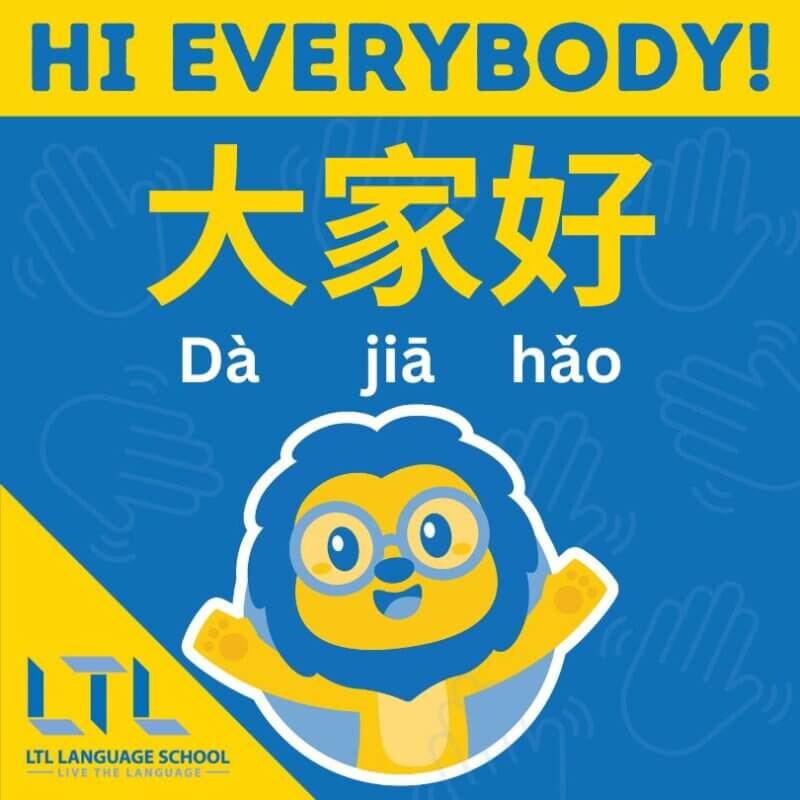
10. 你吃了吗? Nǐ chī le ma
你吃了吗?“Have you eaten?” probably the single greeting which has caused the most amount of confusion.
If you’re not familiar with Chinese culture you might interpret it as a question and not a greeting!
This a greeting which shows in a that somebody cares about you, you should not describe in detail what you’ve eaten, or how hungry you are.
Rather, you should answer “chī le, nǐ ne?” which means “I’ve eaten, how about you?”

Chinese + English = Chinglish 😲 You Must See To Believe
Chinglish – Sometimes you have to see it to believe it. You will be amazed at some of these language mishaps that are made when translating to Chinese.
11. 最近好吗?Zuì jìn hǎo mǎ
最近好吗?This means “How have you been recently?”
Let’s break it down in greater detail:
最近 zuì jìn – recently
好 hǎo – good
吗 ma – question particle used for yes or no questions
Similar to “how are you” in English, you can answer with a quick word or two, or you could go into greater detail.
Another alternative, used in the exact same way, is:
最近过得怎样呀?Zuìjìnguò dé zěnyàng ya?
How has life been recently?
12. 去哪儿?Qù nǎ er
去哪儿?“Where are you going?” similar to 你吃了吗 previously, it’s a way to show you care, and not meant to be nosy.
As this greeting often depends on location, for example, if you meet someone on the subway in the morning you might ask:
你去上班吗? – Nǐ qù shàngbān ma? Meaning “are you going to work?”
Want to connect with other Chinese language learners and have daily conversation practice? Join our LTL Discord Server!
13. 喂!Wèi
喂“Hello?” speaking of subways, if you’ve ever been to China you’ve most certainly heard someone shout 喂! Wèi on your morning commute.
That’s because this is used when answering up the phone.
Like in English, if the connection is poor, or the line drops, you’d shout “hello?” people in China will shout 喂 wèi?
14. 好久不见!Hǎo jiǔ bú jiàn
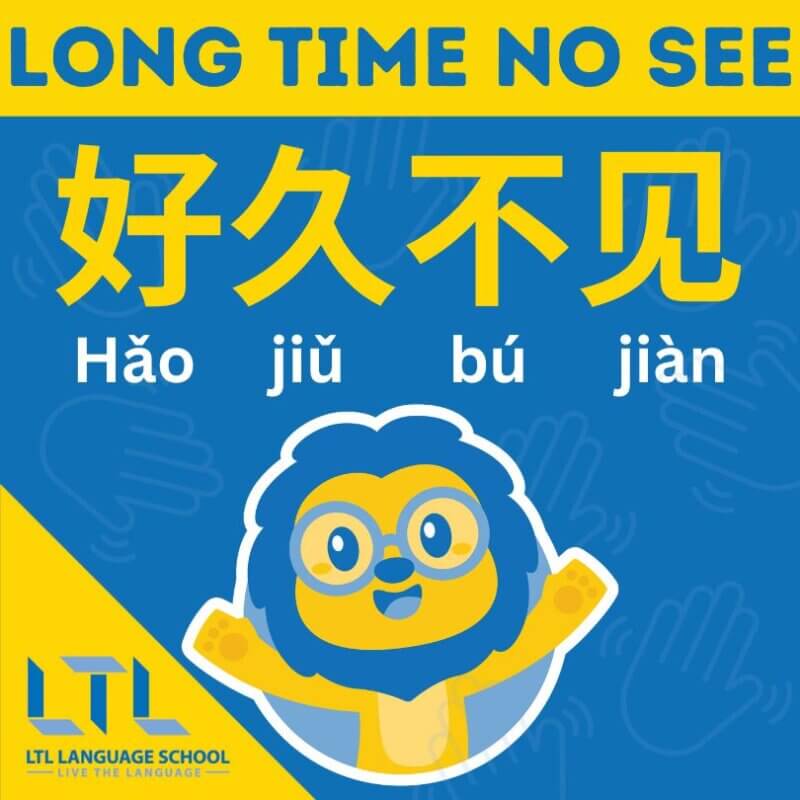
This is a common way to greet someone in Chinese.
“Long time no see!”
Used when old friends meet, this is a very positive, happy greeting.
The literal translation “long time, no see” has also made its way into the English language.
FUN FACT – we use long time, no see because we took it from the Chinese version of 好久不见!
15. 大家好 – Dàjiā hǎo
大家好Hello everyone: used when addressing a crowd.
大家 dàjiā simply means everyone.
16. 下午好 – Xiàwǔ hǎo
下午好下午好 means good afternoon.
下午 (xiàwǔ) means afternoon and 好 (hǎo) means good.
17. 晚上好 – Wǎnshàng hǎo
晚上好This is an ideal one for you night owls out there.
This one means good evening. 晚上 (wǎnshàng) means evening or night and 好 (hǎo) means good.

I Learned Chinese Across China || Here’s Where You Should Go
Where is the best place to learn Chinese in China? The country isn’t exactly small, options are vast and it can appear tough. Here’s our favourites.
18. 哈罗! Hā luō
哈罗This is a phonetic adaptation of the English “hello”.
It’s mostly used by young, urban people and is a more fun way to greet someone.
19. 嗨!Hāi, and 20. 嘿! Hēi!
嗨! 嘿!
A phonetic adaptation of “hi” and “hey”, like 哈罗 before, this is used mainly by young, urban types.
So there you have it!
There you have it, 20 ways to greet someone in Mandarin Chinese, now go out there and practice!
Got anymore that we may have missed?
Leave a comment below and add your favourites or check out our other guide to more greetings in Chinese which includes a free quiz!
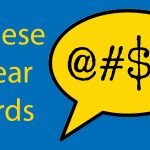
I Learnt 55 Swear Words From Native Chinese Speakers
Chinese swear words are the most exciting thing for newbies is learning how to say bad things. Here are 55 I learnt from native speakers.
Want to discover more basic greetings?
Why not check out our guide to Japanese greetings, informal and formal ways to say hello in Korean and the best ways to say hello in Vietnamese whilst you’re here?
Hello in Mandarin Chinese // FAQ’s
How do Chinese greet each other on the phone?
Rather than using 你好 Nǐ hǎo Chinese tend to use 喂 Wèi when answering the phone to greet someone.
Is Hello different in Cantonese?
Yes, whereas in Mandarin you would say 你好 – Nǐ hǎo, in Cantonese the pronunciation is slightly different, Neih hou.
How do you say Thank You in Chinese?
Thank you in Chinese is 谢谢 Xiè Xiè.
What does hello in Mandarin literally translate to?
Hello in Chinese is 你好 – Nǐ hǎo.
This quite literally translates to “you good”.
In a formal situation, what’s the best way to say hello in Chinese?
Similarly to the informal version of hello (你好 – Nǐ hǎo), the formal version just includes an extra N making 您好 “Nin hao”.
This is best used in formal situations in China.
Want more from LTL?
Want to learn Chinese from the comfort of your own home? Then our 24/7 online Chinese lessons might be the thing for you.
We offer a 7 day free trial to all new online students where you can study Mandarin 24/7.
Come and check it out free of charge and see what you think!
If you wish to hear more from LTL Language School why not join our mailing list?




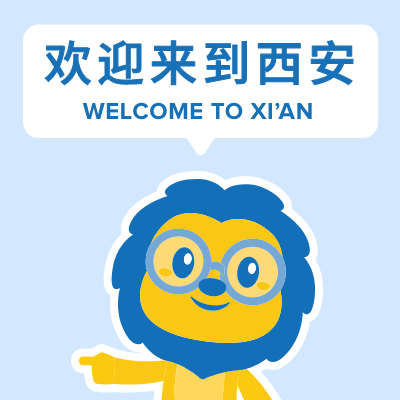



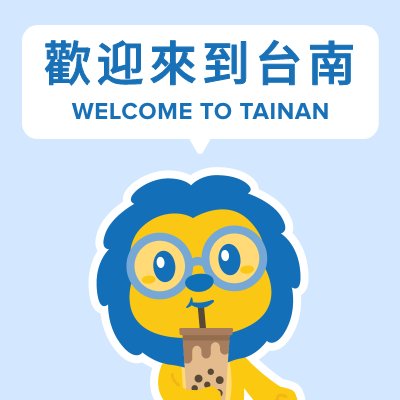
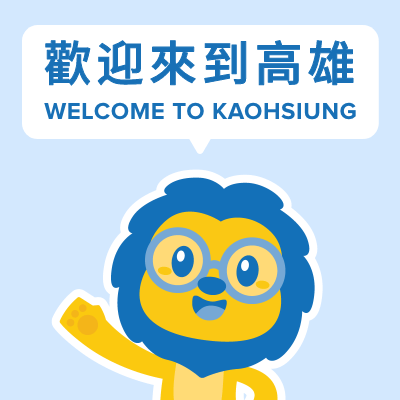
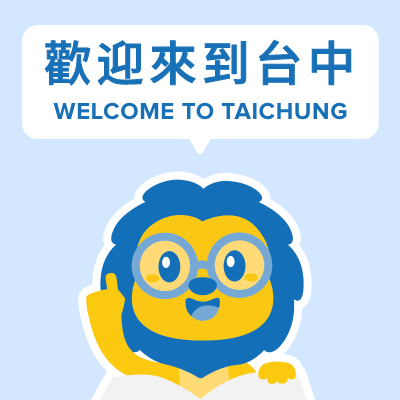
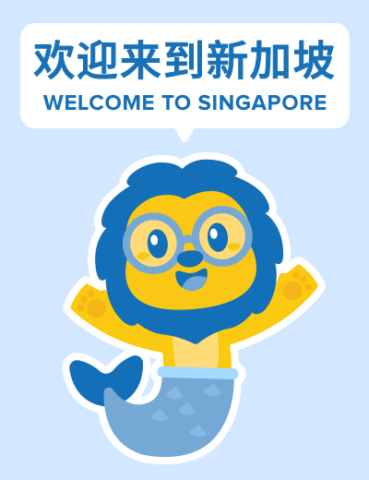

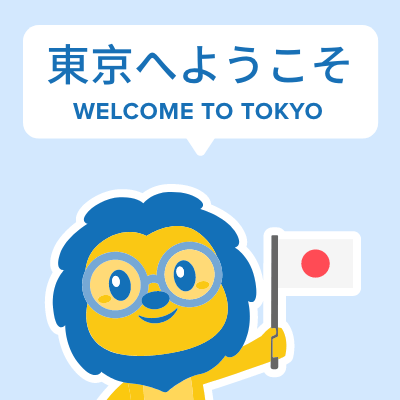
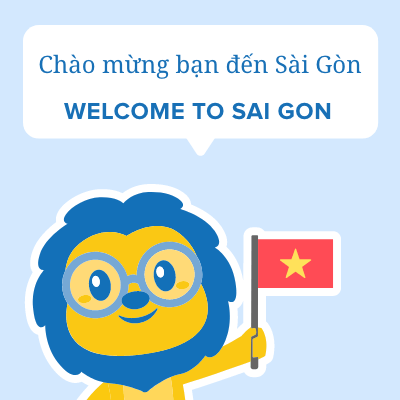

 Hi, my name is Manuel! I am from Spain and I am a Student Advisor at LTL. I’m now based at our Seoul School after living 3 years in Taipei.
Hi, my name is Manuel! I am from Spain and I am a Student Advisor at LTL. I’m now based at our Seoul School after living 3 years in Taipei. Hi, my name is Mojca! I am from Slovenia in Europe and I work as a student advisor at our Shanghai school.
Hi, my name is Mojca! I am from Slovenia in Europe and I work as a student advisor at our Shanghai school.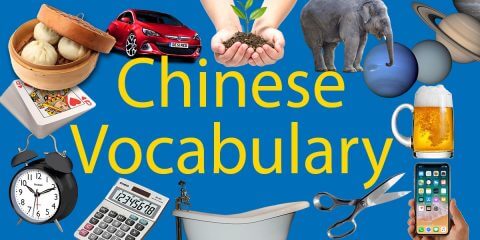
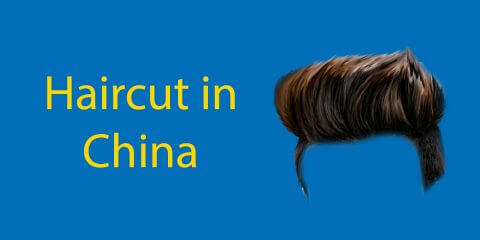




13 comments
Great post! Thank you!
Thanks as ever for the reply Catherine! We can say HI in more ways than one now!
Is hello in Shanghainese the same as in Mandarin?
Hi Marcus, thanks for the comment.
Actually hello in Shanghainese is different to Mandarin - 侬好 (nong hao), notice nong is used instead of ni
If you wish you can find out more about Shanghainese here - https://www.ltl-shanghai.com/learn-shanghainese/
LTL
Nice, didn't really know there were so many away from nihao! Time to raise my game
Oh indeed. Don't underestimate the Chinese language Paulo!
[…] Scopri più saluti in Cinese. […]
That is great i Like Mandarian alot and it is super cool LOL
Glad to hear it!
Who knew! SO many ways, i like them
Plenty of options Tristan!
[…] Check out some alternate ways to say hello in Mandarin. […]
[…] Apr 23, 2019 … So you think you know how to say hello in Chinese, it's easy, isn't it? … Just do your best 你好 “NI HAO!” and half the job is done. You might … read more […]